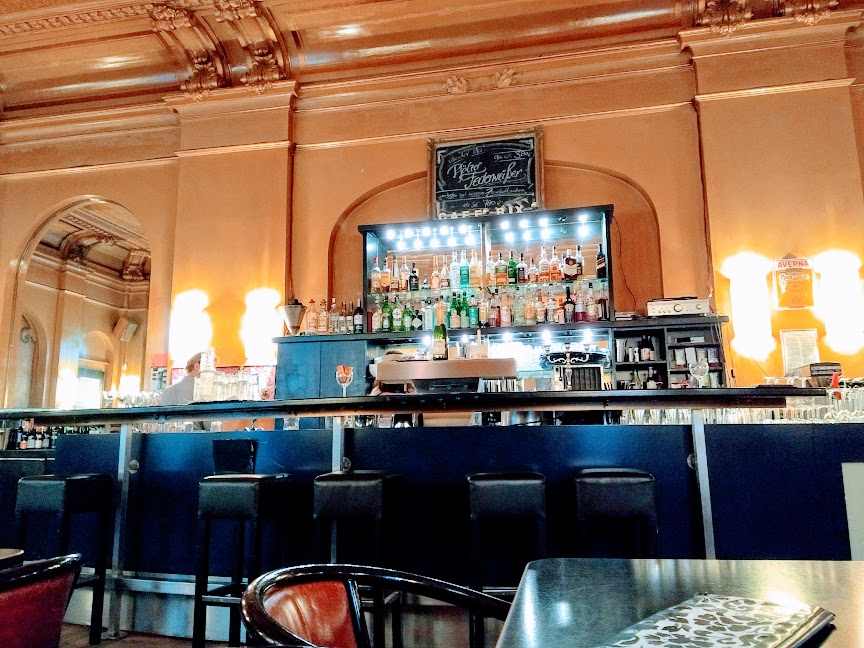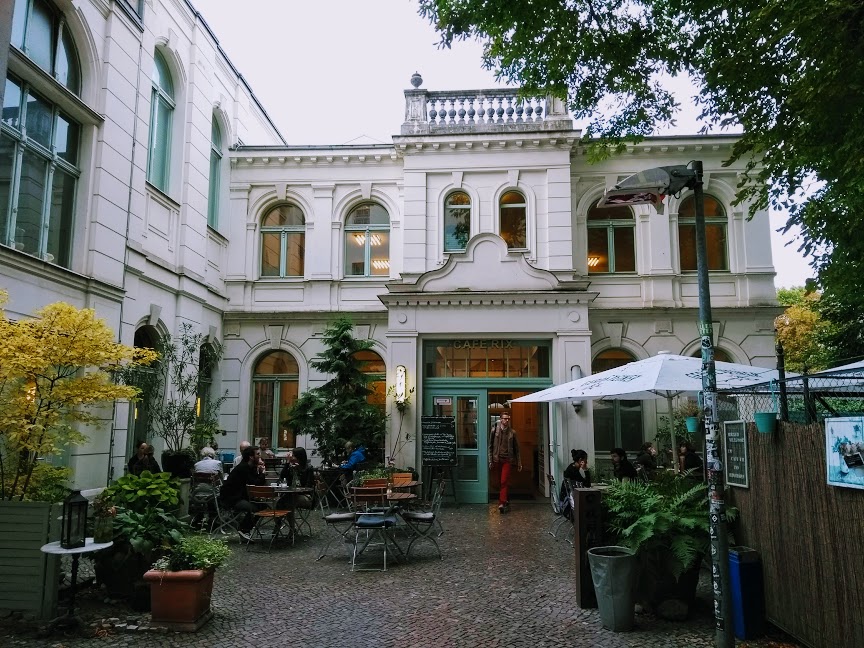A Secret Plan in Rix Café
What secret plan is being hatched in Rix Café?

In Rick’s Café, in the film Casablanca, they sing La Marseillaise around a piano. In Rix Café in Neukölln, Berlin, they are playing Spandau Ballet.
It’s Mahlzeit––time for a working man’s lunch––and four lads in overalls have piled their heavy winter coats onto a chair, to sit in the corner, drink Hefeweizen, and eat Gänsekeule, or roast duck. A young couple play hide and seek with their two-year old behind the bar. There is no sense of urgency here, no spies scoping you out from a neighbouring table, no messages being passed to the enemy. A cultural meeting point for the folk of Rixdorf for most of its history, Café Rix in 1942 did briefly have the ignoble purpose of being the storeroom for the expropriated goods of expelled Jews. These days, however, Café Rix, in the reconstructed German capital, has peacetime written all over it.

The men finish up their beers. I turn over my book and think about how Rix is democratic, how it’s the kind of place––with its vaulted ceilings, stück, and gilt––that could be fancy. The interior is from the 1890s, a mix of Baroque and Art Nouveau. It could be converted easily (maybe in another decade once Neukölln outprices everyone) into something more like the Literaturhaus on Kürfurstendamm. Even the pavillion exterior with its classical window casements looks similar to that swish establishment. But Café Rix wouldn’t be Café Rix if it were trying that hard. Here, you feel like the Old Berlin is hanging on against gentrification. The plastic chairs and menus help.
I sit in my corner a little longer and something catches my attention: I observe a drag queen, her sequinned tope blouse reflected in the mirrors. One of the burly painters in his splattered overalls passes her at this very moment in the other direction. They hardly look at each other. On the surface, it seems a moment of supreme Berliner Wurstigkeit, of ‘I could-give-a-damn’ attitude. But then, at the last moment, a knowing glance is exchanged. Did I only imagine a frisson between them, something unspoken?
I begin to construct a preposterous plot to match this gilded interior: maybe much later, when the lights dim, the two of them will find themselves in a corner, under the chandelier, whispering about a still smouldering love affair, a half-buried memory. They will discuss breathlessly how there’s a plane waiting for them. They will plot how they’ll get on that plane, a one-way flight to somewhere where it’s not sleeting outside and December. They’ll be far away from here by this evening, while I’m at home under a warm cover just watching old movies.
But my thoughts are interrupted by the child who knocks over a chair, the gruff murmuring of the exiting lunchtime crowd, and the sudden strains of Freddy Mercury.
Rix’s faded opulence lends itself to fantasies, but I have the suspicion here that the plot here is actually very ordinary.
Maybe it’s precisely that which makes Rix so particular.
Maybe it’s precisely that which (I hope) will make people say: We will always have Rix.

by Joseph PEARSON

aww nice – i will go for lunch there soon…
great writing – very enjoyable.
good job !